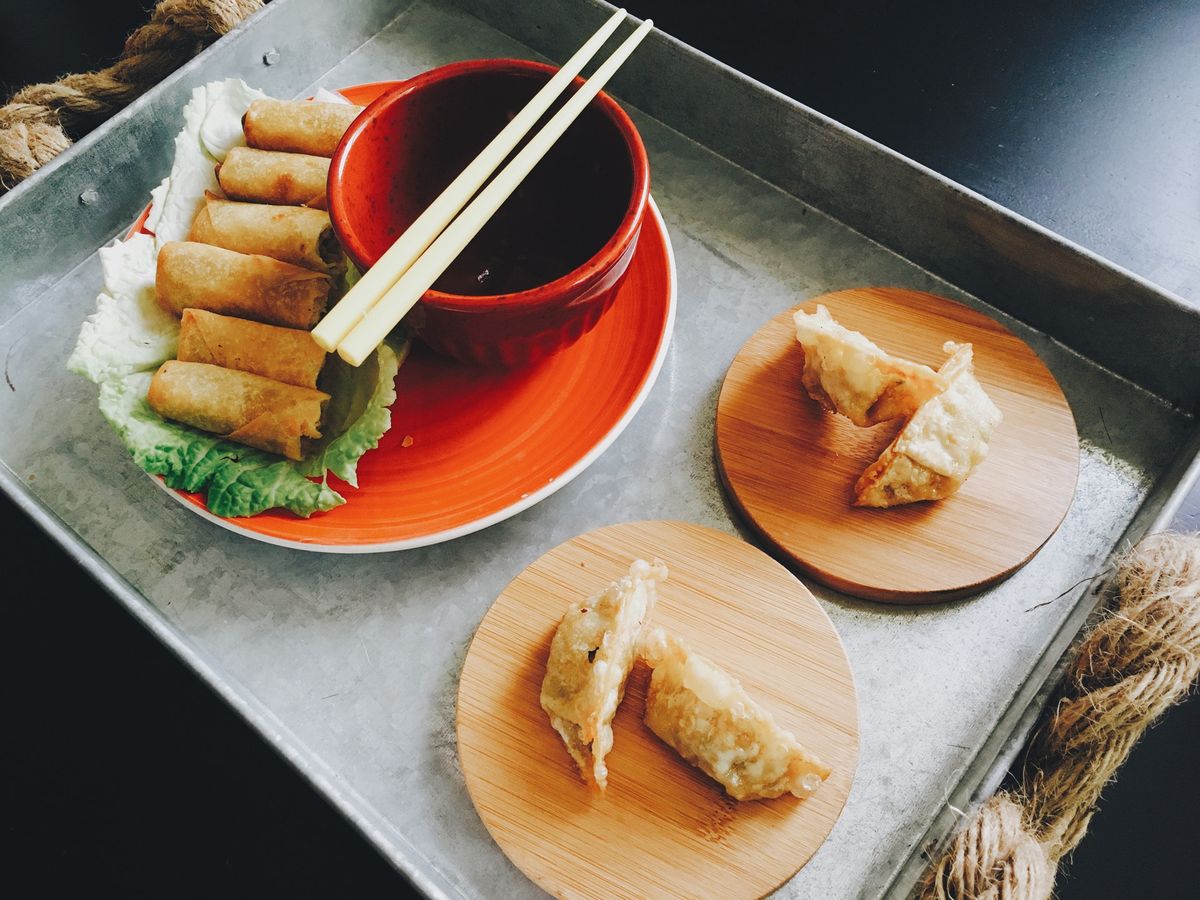Traditional foods for Chinese New Year and their significance

A few minutes every morning is all you need.
Stay up to date on the world's Headlines and Human Stories. It's fun, it's factual, it's fluff-free.
There are many traditional foods for Chinese New Year, and they each have a unique meaning behind them. Chinese New Year, also known as the Spring Festival, is the most important celebration in China during which Chinese people emphasize wishes for happiness, prosperity and family togetherness. This is one of the reasons the “reunion dinner" – typically eaten by families on New Year’s Eve – is such an important New Year’s tradition.
Serving an abundance and variety of food on the table is also a must. Each auspicious Chinese New Year dish has a specific meaning based on food name pronunciation, shape, colors, history and even legends. Because China is one of the largest countries in the world, the ingredients, preparation and even consumption of any given dish is also native to a specific region. We’ve compiled a list of the most traditional foods for Chinese New Year and explored their significance and meanings.
Dumplings (饺子 Jiǎozi)
Dumplings (饺子 Jiǎozi) are a classic auspicious dish, traditionally eaten on Chinese New Year’s Eve. With a history of more than 1,800 years, dumplings were widely popularized in China, particularly in the Northern regions. Chinese dumplings symbolize wealth, as their shapes resemble a Chinese sycee (細絲 sai-sì). Legend states that the more dumplings you eat during the New Year’s celebrations, the more affluent you will be in the new year.
Spring Rolls (春卷 Chūnjuǎn)
Spring rolls (春卷 Chūnjuǎn) have been given this name, as this dish is typically eaten during the celebration of the Spring Festival. Popularized in Eastern China, spring rolls are a Cantonese dim sum dish of cylindrical-shaped rolls filled with vegetables, meat or a sweet paste. Fillings are wrapped in thin dough wrappers and then fried to give spring rolls their golden-yellow color. Spring rolls are a symbol for wealth, as fried spring rolls resemble gold bars.
Fish (鱼 Yú)
In Chinese, the pronunciation of yu also has the meaning of surplus and fortune. Fish is a traditional Chinese New Year dish typically eaten on the reunion dinner. For Chinese people having a surplus at the end of the year means that they can make more in the new year.
Fish can be prepared in various ways such as boiling, steaming and braising. However, steamed fish is the most popular recipe for Chinese New Year. It is also auspicious to eat the fish in a specific way during the celebrations. The fish should remain as the last dish at the dinner with some left over, as this has connotations for there being surpluses every new year. This is a practice of the Northern regions of the Yangtze River. However, in other areas, the head and tail of the fish should not be eaten until the start of the year, which signifies the hope that the year will begin and end with a surplus.
There are also some rules related to the position of the fish at the dinner table. The head should be positioned toward elders or distinguished guests, representing respect. It is customary for the fish to only be eaten after those who face the fish head eat first. The fish should not be moved. The two people who face the head and tail of fish should drink together, as this is supposed to have prosperous connotations. These traditions are observed in a lively and lighthearted spirit.
Longevity Noodles (长寿面 Chángshòu Miàn)
Longevity Noodles (长寿面 Chángshòu Miàn) unsurprisingly symbolize a wish for longevity. The length of the noodles is also symbolic of the life span of the eater. In northern China, it is considered a prosperous dish to be eaten on Chinese New Year’s Day. They are longer than normal noodles and uncut, either fried and served on a plate or boiled and served in a bowl with their broth.
Sweet Rice Ball (汤圆 Tāngyuán)
Sweet rice ball (汤圆 Tāngyuán) is typically eaten during the Lantern Festival, however, in southern China, this dish is eaten throughout the celebration of Chinese New Year. The pronunciation and round shape of tangyuan are associated with reunion and family togetherness, which is the reason this dish is favored by the Chinese during the New Year.
Glutinous Rice Cake (年糕 Niángāo)
Glutinous rice cake (年糕 Niángāo) was originally used to worship deities and ancestors, however, it has since been popularized as a lucky dish eaten on the eve of Chinese New Year. In Chinese, the pronunciation of niangao has a homophonous meaning of “growing prosperity year after year.” For Chinese people, the glutinous rice cake is a symbol for higher-income or general improvement in life. Typically niangao is made with sticky rice, sugar, chestnuts, Chinese dates and lotus leaves.
Have a tip or story? Get in touch with our reporters at tips@themilsource.com




Comments ()